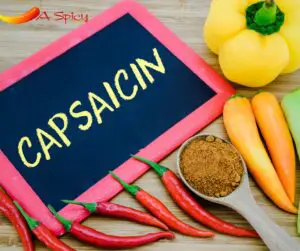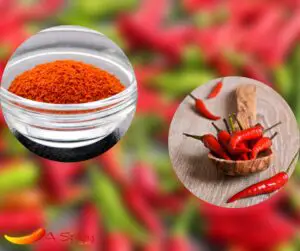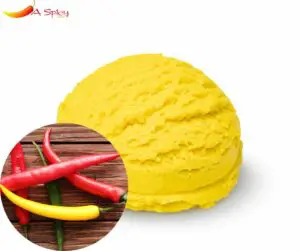
Cayenne pepper is a popular spice that is used in many dishes. It has a strong, spicy flavor that can add a kick to any meal. Cayenne pepper is also a potent medicinal herb that has been used for centuries to treat a variety of ailments.
The pack benefits of cayenne pepper are numerous. It is a natural detoxifier and can help to boost the immune system. Cayenne pepper is also known to improve circulation and increase blood flow. Additionally, cayenne pepper can help to relieve pain, reduce inflammation, and promote healthy digestion.
If you are looking for a way to spice up your health routine, cayenne pepper is a great option. This versatile spice can be used in many ways to improve your health and well-being.
What Is the Active Ingredient Present in Cayenne Pepper?

Cayenne pepper is a type of chili pepper that is commonly used in cooking. It is made from the dried ground peppers of the Capsicum annuum plant. The active ingredient in cayenne pepper is capsaicin. Capsaicin is a compound that is responsible for the spicy flavor of cayenne pepper. It is also responsible for the burning sensation that is felt when eating cayenne pepper.
What Are the Benefits of Cayenne Pepper?
Cayenne pepper is a popular spice that is used in many dishes. It is also known for its medicinal properties. Capsaicin, the compound that gives cayenne pepper its heat, is known to boost metabolism and heart health. It can also clear congestion and relieve joint pains. We also know cayenne pepper to be beneficial for skin and hair.
- Helps Detoxify
- Can Reduce Pain
- Lower Blood Pressure
- Improves Digestive Health
- Boosts Metabolism
- Clears Congestion
Helps Detoxify
Cayenne pepper is a highly effective detoxifier and when combined with lemon water, provides a powerful punch of vitamins and minerals. The spice helps to cleanse the body of toxins and the lemon water helps to flush them out. This combination is an excellent way to cleanse the body and jump-start a healthy lifestyle.
Can Reduce Pain
If you’re looking for a natural way to reduce pain, cayenne pepper may be worth a try. The hot and spicy taste of cayenne pepper is mostly due to a substance known as capsaicin, which is known to have pain-reducing effects. While more research is needed, some studies have shown that capsaicin can help reduce pain when applied to the skin. So, if you’re looking for a natural way to ease pain, cayenne pepper may be worth a try.
Lower Blood Pressure
Cayenne pepper is a popular home remedy for high blood pressure. Some people claim that it can help lower blood pressure overnight, but there is no scientific evidence to support this claim. However, cayenne pepper may help to heal other blood pressure problems. Capsaicin, the active ingredient in cayenne pepper, is a potent vasodilator. This means that it can help to widen blood vessels and improve blood flow. Cayenne pepper may also help to reduce inflammation and prevent blood clots.
Improves Digestive Health
We believe cayenne pepper improves digestive health because of its ability to boost heart action and circulation. Additionally, cayenne is thought to stimulate the digestive system and help the body break down food more efficiently.
Cayenne is a natural anti-inflammatory agent which can help to reduce inflammation in the digestive tract. Ultimately, cayenne pepper may help to improve the overall quality of your health by promoting better digestive function.
Boosts Metabolism
If you want to give your metabolism a boost, cayenne pepper is a great option. Capsaicin, the active compound in cayenne pepper, has been shown to increase the strength and speed of the metabolism, according to a study conducted and researchers. This can lead to weight loss, as the body burns more calories.
Clears Congestion
If you are suffering from sinus congestion, cayenne pepper can help you out. The capsaicin in the pepper can thin the mucus and stimulate the sinuses. This ultimately aids air circulation, offering you relief.
Taking foods containing cayenne pepper can help clear the congestion. You can also make a cayenne pepper spray by mixing the pepper with water and spraying it into your nostrils. However, make sure you do a patch test first to see if you are allergic to the pepper.
What Happens when You Take Cayenne Pepper Every Day?
When you take cayenne pepper every day, you may experience a range of benefits, including improved circulation, better digestion, and relief from pain.
Cayenne pepper is a natural source of capsaicin, which is a compound that has been shown to have a variety of health benefits. Capsaicin is known to help improve circulation and digestion, and it has also been shown to be an effective pain reliever.
How Much Cayenne Pepper Should You Take a Day?
Cayenne pepper is a versatile herb that can be taken in many forms. The most common way to take cayenne pepper is in capsule form, which can be taken anywhere from 1 to 3 times per day. Another way to take cayenne pepper is in liquid tincture form, which is also taken 2 times per day.
For those who want to make their own cayenne pepper infusion, 1 teaspoon of powdered cayenne pepper per cup of water can be used. We can take this infusion in small doses throughout the day.
Can You Take Too Much Cayenne Pepper?
Cayenne pepper is a spice that can add a lot of flavor to food. However, it is also possible to consume too much cayenne pepper. When this happens, it can lead to gastrointestinal disorders, such as irritation or burning sensation in the stomach.
Therefore, it is important to be aware of how much cayenne pepper you are consuming. If you experience any discomfort, it is best to cut back on the amount of cayenne pepper you are eating.
Finally
In conclusion, eating spicy food can be good for you. This doesn’t mean you should go overboard, but that you should increase your intake of capsaicinoids. Capsaicin is a key ingredient in the spicy chili peppers that we eat. The capsaicin reacting with pain receptors in your mouth caused the heat you feel from a dash of hot pepper.
But capsaicin does not go through the intestinal barrier to the bloodstream. Not only does this mean that capsaicin won’t “burn” your stomach, but also that it won’t trigger a reaction from your body’s pain receptors.







